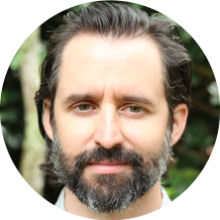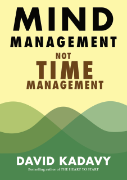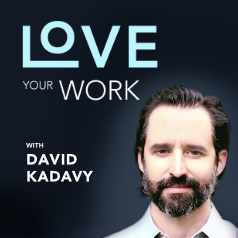Subscribe to blog updates via email »
Farm What You Forage – Love Your Work, Episode 269
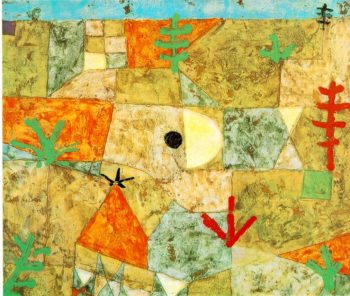
Many people think our hunter-gatherer ancestors lived short and miserable lives. In fact, that’s what most anthropologists thought. Until the 1960s, when they looked more closely at how foragers got by.
The way foragers “worked” can tell us a lot about the way we, as creators, work.
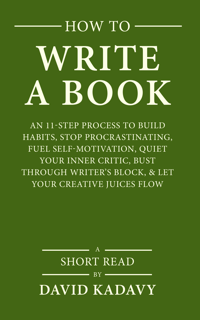
WANT TO WRITE A BOOK?
Download your FREE copy of How to Write a Book »
(for a limited time)
Listen to the Podcast
- Listen in iTunes >>
- Download as an MP3 by right-clicking here and choosing “save as.”
- RSS feed for Love Your Work
Farming gets a lot of output with little effort
No one can be exactly sure when a human first planted a seed to grow food, but this one act was one of the most revolutionary in human history – up there with the invention of fire, or the internet. The agricultural revolution meant humans no longer needed to roam around, searching for food.
But, with the innovation of agriculture came some trade-offs. We had to wait for our crops to grow, so we had to stay in one place. But staying in one place didn’t work out-of-the-box everywhere. As anthropologist James Suzman points out in his book, Work: A Deep History, from the Stone Age to the Age of Robots, the first successful cities sprouted up in floodplains. These areas flooded regularly, and that refreshed the nutrients in the soil, which was a must for successful farming, as crop-rotation hadn’t yet been invented.
Which brings us to another drawback of farming. Yes, farming gets you a lot of food with little effort, but eventually your once-fertile soil runs out of nutrients.
Creative “farming” grows ideas into finished products
As creatives, it’s useful for us to “farm.” Plant seeds of ideas. Give them water, sunlight, and fertile soil, and eventually you’ll have a crop of creative products to harvest.
I talked in my book, Mind Management, Not Time Management, about “creative systems.” Cultivating ideas takes time. By working with the cycles of your energy to do short bursts of work, and letting incubation do the rest, you can always have creative products to ship. (I talked specifically about my creative system for Love Mondays newsletters on episode 260.)
Creative farming is a great way to consistently turn ideas into finished products. But foraging is where you get the ideas in the first place.
Foraging is more effective than you think
In the 1960s, anthropologist Richard Borshay Lee lived with a hunter-gatherer tribe in the Kalahari desert. He carefully tracked what they spent time on, and what they got out of it. Lee found these tribes met all their needs for food in just fifteen hours work a week. They consumed well over the daily recommended intake of 2,000 calories, and they did it all without farming. They did it by foraging.
Fifteen hours a week to get everything you need. That sounds appealing to many of us. Fifteen hours a week is ironically the number of hours economist John Maynard Keynes once predicted we in the industrial world would work. In 1930, in the midst of the Great Depression, Keynes had the guts to predict that by 2030, we would at least quadruple our productivity. As a result, he said, we would work only fifteen hours a week.
But foraging doesn’t lead to progress
We reached that quadruple-productivity mark way back in 1980. But we still work way more than fifteen hours a week. Why? We can make philosophical arguments about the hedonic treadmill, and how we buy too much junk. But one thing is for sure: We want to see “progress.”
These hunter gatherer tribes, who have sadly been all but completely driven off their foraging land by the industrial world, did lead rich lives. They worked for what they needed, they had plenty of leisure time, and everything they did was deeply integrated with their families and communities. But they didn’t have running water, electricity, or modern medicine. Many lived as long as anyone in the civilized world – if they reached adulthood. But they had a high infant-mortality rate, which pushed down the average lifespan.
They didn’t have what we consider “progress.” They didn’t wonder if their children would live in a world with human flight, space exploration, or the internet. Each generation’s life was essentially the same as the previous.
Creatives need to forage
As creatives, we can’t just farm. We need to “forage,” too. We need to wander around, follow our curiosities, and see what surprises we can find.
The hunter-gatherers of the Kalahari lived in such a rich ecosystem, they could always feel confident they could find something to eat if they went and looked for it. But as a creator, happening upon a feast is less common. It’s not every day a song comes to us in our sleep, like it did when Paul McCartney wrote “Yesterday.” Or that a happy accident occurs, like when Charles Goodyear spilled chemicals and developed vulcanized rubber.
This is why you need to farm what you forage.
Forage, then farm, to have great ideas, then make them real
Farming what you forage isn’t just a good way to do creative work. If you want to be consistent, it’s the only way. This is hard to see, because we’re working in a world that’s a relic of the assembly line. Doctors, lawyers, accountants, and software developers, themselves, are produced on assembly lines. They follow curricula. They take exams. These exams have bubbles they fill out, so a machine can read them – as long as they’re filled out with a number-two pencil.
But, like farming, these professions grow stale, like soil being sapped of nutrients. The curricula have to change, as do the exams. But those curricula don’t change from farming over and over. Someone has to farm what they forage, to change the field.
Remember from episode 266 that for Henry Ford to put workers on the assembly line, he had to first farm what he foraged. It took a lot of experimentation and tinkering – from Model A to Model S, in addition to the work he did in two previous failed car companies – before the Model T was ready to be produced en masse. But the soil eventually got sapped of its nutrients. While Ford refused to change the Model T until sales dwindled, other car companies were farming what they foraged – innovating to build better cars.
We’re not used to farming what we forage. It’s not how work has gotten done in recent history. But as automation and AI threaten more and more jobs, we’re freed from the drudgery of just farming. We need to forage, too.
I talked in episode 250 about how I farm what I forage with my digital Zettelkasten (that article has since expanded into a successful book by the same name). To forage, I explore what interests me – reading books, listening to podcasts, and having conversations. To farm, I take notes, then categorize and connect them. These seeds of ideas grow over time, until I’m ready to harvest them. An idea can grow into a tweet, then a newsletter, then a podcast episode, maybe eventually even a book.
Farming = clock time; Foraging = event time
Farming and foraging call for different ways of thinking about time, too. In episode 235, I talked about the difference between “clock time,” and “event time.” Clock time’s most recent roots come from Frederick Taylor’s scientific management. Breaking actions down to split seconds was a big departure for farmers who moved to cities to work in industry. But farming, too, was a likely predecessor of clock time.
Foragers could usually be confident that if they were hungry, they could find something to eat. When you live in a diverse ecosystem, if one thing is not doing so well, something else is. In fact, when Richard Borshay Lee was studying foragers, there was a drought. The nearby farmers couldn’t grow crops. To survive, they had to rely on outside food aid. The tribe he was studying did not. They got by on foods they had found in the wild.
When you’re farming, you can’t count on finding food whenever you’re hungry. You have to grow it. So, you have to think carefully about time. If you don’t plant your seeds, pull weeds, or water crops today, you’ll be hungry a long time from now. This is probably one reason cultures close to the equator tend to think more about the present, whereas cultures in climates with changing seasons think more about the future. When surviving tomorrow depends upon what you do today, you think ahead.
If you focus too much on farming, you’ll always be on clock time. If you keep planting the same seeds and growing the same crops, your soil will become sterile.
If you focus too much on foraging, you’ll always be on event time. If you only rely on what you find in the wild, you’ll always be living hand-to-mouth. You’ll be waiting a long time between one idea and the next, and you’ll struggle to develop them into finished products.
Find a seed with potential, then plant it
To farm what you forage, make space to wander. Follow your curiosity, even when it feels as if it will take you nowhere. But when you find something interesting that might have potential, plant the seed. Build creative systems that help you keep ideas growing, without sapping your soil. If you do those two things, you’ll never have famines, and always have feasts.
Image: Southern Gardens, Paul Klee
Join the Patreon for (new) bonus content!
I've been adding lots of new content to Patreon. Join the Patreon »
Subscribe to Love Your Work
Listen to the Podcast
- Listen in iTunes >>
- Download as an MP3 by right-clicking here and choosing “save as.”
- RSS feed for Love Your Work
Theme music: Dorena “At Sea”, from the album About Everything And More. By Arrangement with Deep Elm Records. Listen on Spotify »
